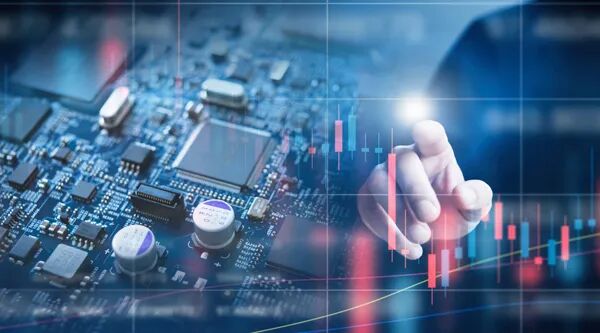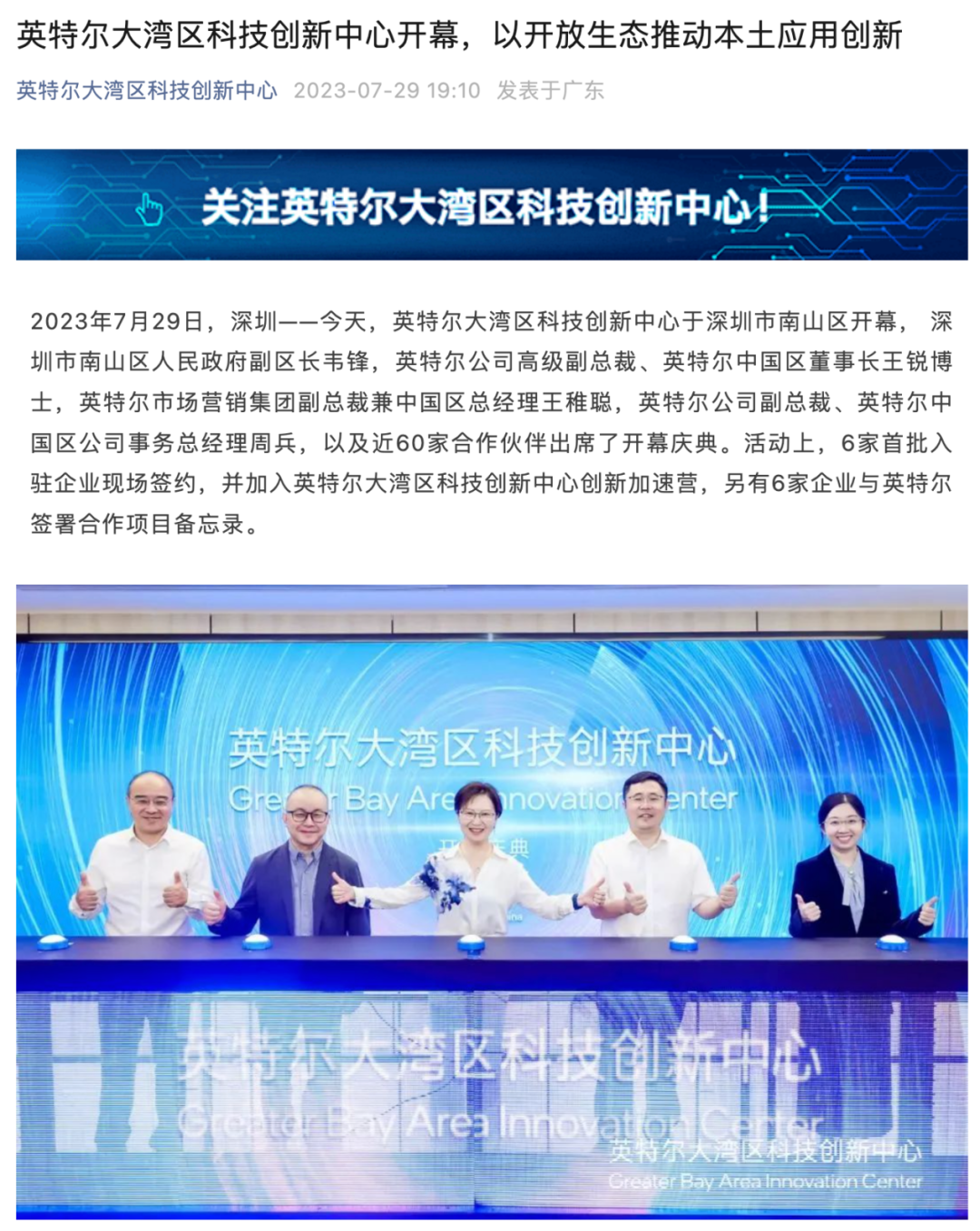

Significant news continues to emerge in the chip sector.
First, the latest actions by US chip giant Intel have drawn attention. On August 2, according to a report by the South China Morning Post cited by Reference News, Intel is collaborating with Shenzhen to establish a new chip innovation center to deepen relations. On the eve of the establishment of this technology innovation center, Intel launched a processor designed to train artificial intelligence systems that complies with US export requirements, aimed at selling it to Chinese customers.
This seems to have become a response measure for US chip companies to follow. According to a recent report by Reuters, US semiconductor company AMD has revealed that it is seriously considering following Nvidia’s approach by adjusting the specifications of its related AI chip products to comply with US government restrictions for exports to China.
Currently, TSMC’s progress in building factories in the US appears to be facing challenges. On August 2, Taiwanese media reported that TSMC stated that a lack of skilled labor in the US has delayed the production launch of its Arizona factory, and it has sent personnel from Taiwan to support the construction of the plant. In response, a union leader in Arizona criticized TSMC for using this as an excuse to bring in “lower-paid foreign workers.”
On August 2, according to Reference News citing the South China Morning Post, Intel is collaborating with Shenzhen to establish a new chip innovation center to deepen relations.
Reports indicate that despite Washington exerting pressure on semiconductor companies to reduce transactions with China, US chip giant Intel is still strengthening its business relations with China by establishing a new innovation center in Shenzhen. This center aims to assist domestic startups in China.
According to a post released by the official WeChat account of the center, Intel launched the Bay Area Technology Innovation Center in collaboration with the Nanshan District government of Shenzhen on July 29, focusing on artificial intelligence, chip application development, edge computing, and digital development, gathering upstream and downstream ecological resources of the industry chain, and working in five major areas: application innovation transformation, acceleration of incubation, achievement display, technical support, and training.


At the opening event, six of the first batch of resident companies signed contracts on-site and joined the Intel Bay Area Technology Innovation Center’s innovation acceleration camp, while another six companies signed cooperation project memorandums with Intel.
According to the statement, this innovation center leverages the location, industry, and policy resource advantages of Nanshan District, integrates Intel’s innovative technology, full-stack product portfolio, and open ecosystem, and gathers the innovative vitality of numerous partner companies, aiming to become a leading domestic and internationally renowned innovation hub.
Wang Rui, Chairman of Intel China, stated at the center’s launch ceremony that Intel will further leverage its technological and ecosystem advantages to promote the integration and development of emerging industries in the Greater Bay Area and across the country, helping to develop the digital economy.
Reports indicate that amid US-China tensions and Washington’s escalating chip export restrictions, Intel is one of several US tech giants attempting to maintain business in the world’s second-largest economy. This technology war has also driven China’s demand for electronic components, especially chips.
On the eve of the establishment of this technology innovation center, Intel launched a processor designed to train artificial intelligence systems that complies with US export requirements, aimed at selling it to Chinese customers.
In mid-July, at a product launch event in Beijing, Intel showcased the Gaudi2 AI processor. Intel Executive Vice President Sandra Rivera stated that this processor can enhance the ability of Chinese customers to “deploy artificial intelligence through cloud technology and intelligent cutting-edge technology, helping to build China’s AI future.”
On August 2, Global Times cited Reuters reporting that US semiconductor company AMD revealed that it is seriously considering following Nvidia’s approach by adjusting the specifications of its related AI chip products to comply with US government restrictions for exports to China.
Reports indicate that AMD CEO Lisa Su stated during an analyst conference call on August 1 that Nvidia had previously adjusted its H100 chip to comply with the US Department of Commerce’s restrictions on advanced AI semiconductor sales to China. AMD is seriously considering adopting a similar strategy to export its MI300 and older MI250 chip products to China. “Of course, our plan is to fully comply with US export controls. But we do believe there is an opportunity to develop products for our Chinese customers who are looking for AI solutions, and we will continue to work in that direction,” Su stated.
In mid-July, the CEOs of the three major US chip giants met with US government officials and lawmakers in Washington, lobbying Biden to abandon new chip export restrictions to China. Intel CEO Pat Gelsinger, Nvidia CEO Jensen Huang, and Qualcomm CEO Cristiano Amon warned that implementing such export control measures could harm the US’s leadership position in the industry.
Foreign media cited sources saying that during the meeting, Gelsinger told US National Security Advisor Jake Sullivan, Secretary of State Antony Blinken, and other officials that further restricting Intel’s business in China would jeopardize Biden’s key policy of “bringing chip production back to the US.”
In response to the US’s export control measures on chips and other products to China, China filed a lawsuit with the World Trade Organization in December last year. The Chinese Ministry of Commerce stated that the US has been broadly interpreting the concept of national security in recent years, abusing export control measures, obstructing normal international trade of chips and other products, threatening the stability of global industrial and supply chains, undermining international economic and trade order, violating international economic and trade rules, contradicting basic economic laws, and harming global peaceful development interests, which is a typical practice of trade protectionism.
On August 2, Taiwan’s United Daily News reported that TSMC stated that a lack of skilled labor in the US has delayed the production launch of its Arizona factory, and it has sent personnel from Taiwan to support the construction of the plant. In response, a union leader in Arizona criticized TSMC for using this as an excuse to bring in “lower-paid foreign workers.”
Reports indicate that one of Arizona’s largest unions, the Arizona Building Trades Association, President Allen Butler wrote in a local business magazine that blaming the issue on US workers is “offensive and incorrect,” and the alternative conclusion is that TSMC wants to use this as an excuse to bring in foreign workers who can be paid less. He emphasized that local workers have extensive experience building and assembling wafer fabs for Intel over the past 40 years.
Reports cite a TSMC equipment supplier stating that TSMC’s Arizona factory has completed the main building and electromechanical engineering, and is now proceeding with final confirmations of the cleanroom and starting installation work. TSMC is purchasing advanced 4-nanometer production equipment from equipment suppliers or transferring it from Taiwan, and due to the precision of the equipment, skilled technicians are required to ensure it operates as scheduled after installation.
TSMC claims that this is the most critical phase for the Arizona plant, and the most advanced precision equipment requires skilled professionals to execute specific engineering tasks. Therefore, they are temporarily dispatching professionals from Taiwan to Arizona to support related work, helping this wafer fab move towards mass production.
TSMC stated that the company does not intend to replace local workers with foreign staff and continues to prioritize hiring local personnel in Arizona. Currently, suppliers are continuously recruiting local construction workers for positions related to electricity, sheet metal, and welding.
Reports indicate that TSMC has sent nearly 500 personnel from Taiwan to support the US plant, most of whom were recruited by contractors such as Fan Hsuan and Han Tang.
Editor: Tactical Heng
Proofreader: Yang Liling
Millions of users are watching
Breaking news! Financial tycoon under investigation! Li Tie has been prosecuted on multiple charges! Former Vice President of the National Energy Investment Group Li Dong expelled from the party
Black swan strikes! Japanese stocks plunge, US urgently voices: Strongly opposed! International giants just announced: Downgrade! How severe is the impact?
Major developments! South Korean room-temperature superconductivity team: Paper has defects! Thousands of US troops trapped, France and Italy announce evacuation! Will Ukrainian forces attack Moscow on August 24?
Trending! Notorious billionaire surrenders, net worth over 40 billion! Biden’s “family issues” trending…
Is a bull market on the horizon? A-shares finally explode, when to go all in? The stupidity of the stock market determines your returns…
Russia’s capital faces attack, Medvedev issues “nuclear weapon” warning! A US general dies in a plane crash, what happened?
Report illegal and harmful information: 0755-83514034
Email: [email protected]